
By Randy Moraitis, MA, CIP, BCPC
I recently lost a very dear friend to an unexpected and sudden death and have naturally been grieving her passing. I also currently happen to have several clients that I am counseling and coaching through seasons of grief. So this seems like an appropriate time to share about the 5 stages of grief.
We can experience grief with any type of serious loss. In addiction to the death of a loved one, we may experience grief from divorce, a hard break-up, even from getting fired from a job we liked.
We all deal with grief in different ways. Some may cry for days on end and completely neglect their own self care. Others may even laugh because they cope with pain using humor. While still others may just feel totally numb–perhaps even judging themselves for not crying or laughing like other people.
There is no right way to grieve. Grieving styles vary from person to person and culture to culture.
The most well known model of grief is from Swiss-American psychiatrist Elisabeth Kübler-Ross and is well known as The 5 Stages of Grief. Here are the stages in order, but remember, someone who is grieving may go through these stages in any order, and may even return to previous stages.
1. DENIAL–This is where a person may say, “This can’t be happening.” They can refuse to accept the hard fact that a loss has occurred. They may minimize or outright deny the situation. It is suggested that loved ones and professionals be forward and honest about losses to not prolong the denial stage.
2. ANGER— “Why is this happening to me?” When an individual realizes that a loss has occurred, they may become angry at themselves or others. They may argue that the situation is unfair and try to place blame. They may be angry at God, at another person, or even at themselves.
3. BARGAINING— “I will do anything to change this.” In bargaining, the person may try to change or delay their loss. For example, they may try to convince a partner to return after a breakup, or search for unlikely cures in the case of a terminal illness. They may even try to bargain with God.
4. DEPRESSION—“What’s the point of going on after this loss?” At the stage of depression the individual has come to recognize that a loss has occurred or will occur. The individual may isolate themselves and spend time crying and grieving. They may have trouble sleeping, lose focus at work or school, or lose bodyweight. The good news about this stage is that depression is a precursor to acceptance because the individual has come to recognize their loss.
5. ACCEPTANCE— “It’s going to be okay.” Finally, the individual will come to accept their loss. They understand the situation logically, and they have come to terms emotionally with the situation. At this point the person is more able to move on with their life.
If you are currently experience grief of any sort, I strongly encourage you to seek support. Even though you may feel like isolating, processing through your grief with wise and healthy support is highly recommended and may actually reduce the length of your grieving process.
Many hospitals and churches offer free grief support groups. There are also many wise counselors and therapists who can help you process your grief in a healthy way. Be sure to ask if they have experience with grief recovery. There is also an organization called GriefShare that can help you find local grief support groups. You can also sign up for a daily encouraging email on their website: https://www.griefshare.org/.
Special thanks to GriefShare and TherapistsAid for info used in this post.
I would love to hear your thoughts on this topic.
Call me at 949-303-8264
Email: randy@randymoraitis.com
Websites: www.carepossible.com, www.randymoraitis.com
Facebook: https://www.facebook.com/RandyMoraitisCoach/
Twitter: @rmoraitis
About Randy Moraitis, MA, BCPC, CIP
Randy is married to Kim and they live in Laguna Niguel. Together they have a blended family of five adult children and three beautiful grandchildren. (If you don’t believe Randy, he will gladly show you pictures!)
Randy is a Certified Intervention Professional (CIP) and expert in helping families and individuals affected by addiction and/or mental health issues through counseling, coaching and interventions. He is a Board Certified Pastoral Counselor and is both licensed and ordained as a pastoral counselor. He has five professional coaching certifications and loves working with clients on executive coaching, life coaching, wellness coaching and recovery coaching. Randy has a master’s degree with emphasis in theology and counseling, a bachelors degree in management and leadership, and a certificate in health and fitness with emphasis in exercise physiology and sports psychology from UC Irvine. He has been leading groups, individuals and families to mental, physical and spiritual healthy in Orange County for over 25 years.

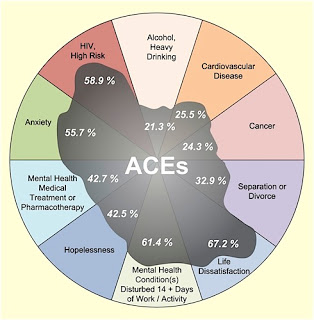

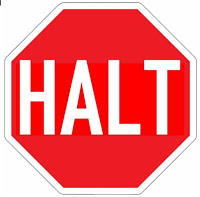





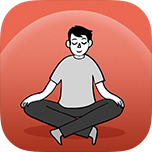 1. Stop, Breathe & Think–This is a great, free app that has a 5 star rating and is a Webby Award Winner. I love this app and use it myself for relaxation and meditation. I also have many of my counseling and coaching clients use this app with great success.
1. Stop, Breathe & Think–This is a great, free app that has a 5 star rating and is a Webby Award Winner. I love this app and use it myself for relaxation and meditation. I also have many of my counseling and coaching clients use this app with great success.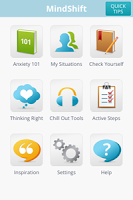 3. Mindshift–This app is specifically designed for those struggling with anxiety. Although not as highly rated as the above apps, my experience is that counselors love what this app does for their clients as a tool for managing and working through anxiety. The app includes a section on situations that trigger anxiety and how to have healing, as well as some great “chill out” tools and Twitter-worthy inspirational quotes.
3. Mindshift–This app is specifically designed for those struggling with anxiety. Although not as highly rated as the above apps, my experience is that counselors love what this app does for their clients as a tool for managing and working through anxiety. The app includes a section on situations that trigger anxiety and how to have healing, as well as some great “chill out” tools and Twitter-worthy inspirational quotes.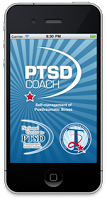 4. PTSD Coach–This is a great app that was developed by the Department of Veteran Affairs National Center for PTSD. Although originally intended for use by vets with PTSD, a quick read through the reviews shows that many civilians have been helped by this app as well.
4. PTSD Coach–This is a great app that was developed by the Department of Veteran Affairs National Center for PTSD. Although originally intended for use by vets with PTSD, a quick read through the reviews shows that many civilians have been helped by this app as well. 5. Optimism–This is a 4 star rated app that helps users with self-tracking as a tool for coping with mental health issues such as anxiety, depression, bipolar disorder and PTSD. The app allows users to create a custom wellness plan and is particularly useful when the user is working with a mental health professional.
5. Optimism–This is a 4 star rated app that helps users with self-tracking as a tool for coping with mental health issues such as anxiety, depression, bipolar disorder and PTSD. The app allows users to create a custom wellness plan and is particularly useful when the user is working with a mental health professional.



